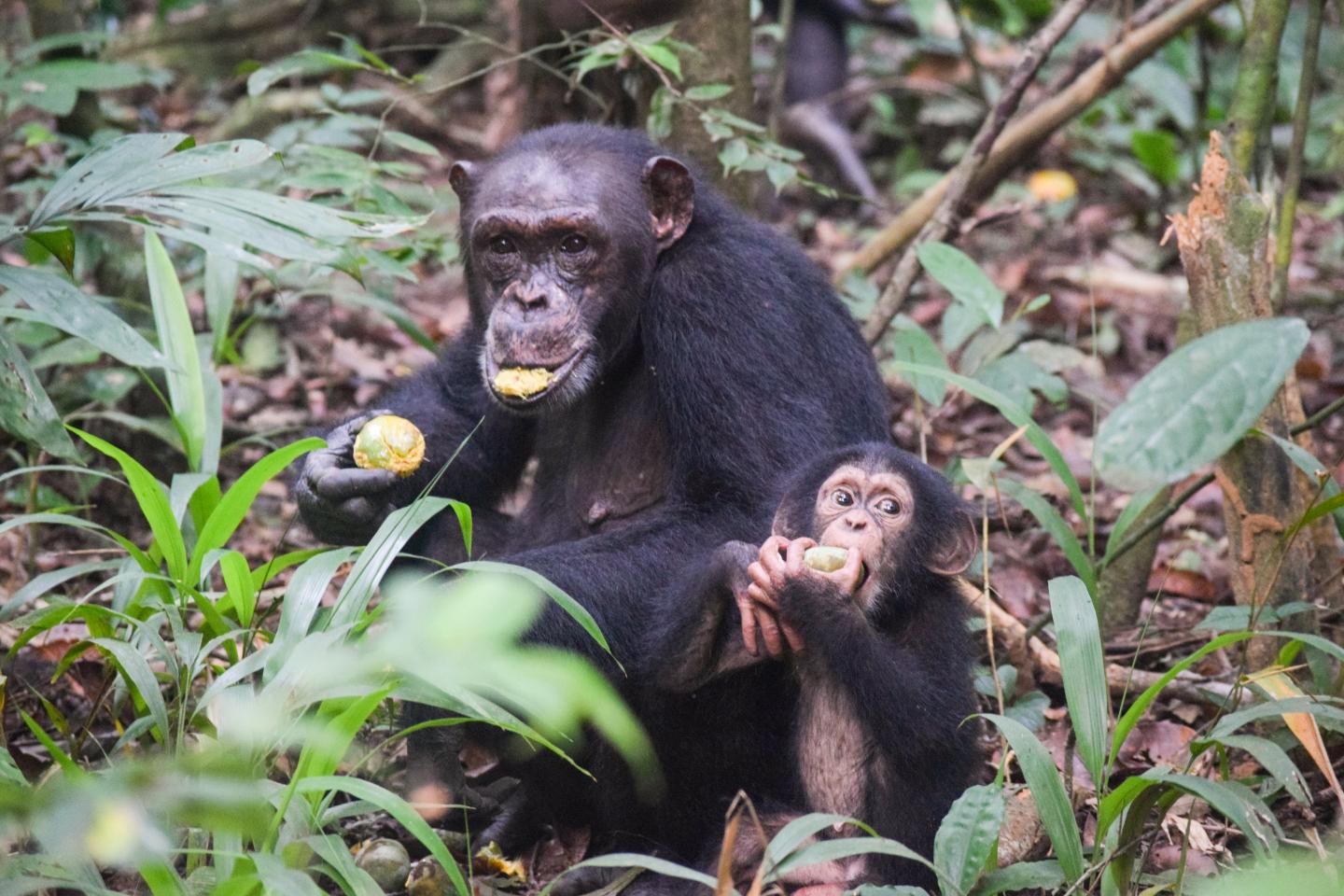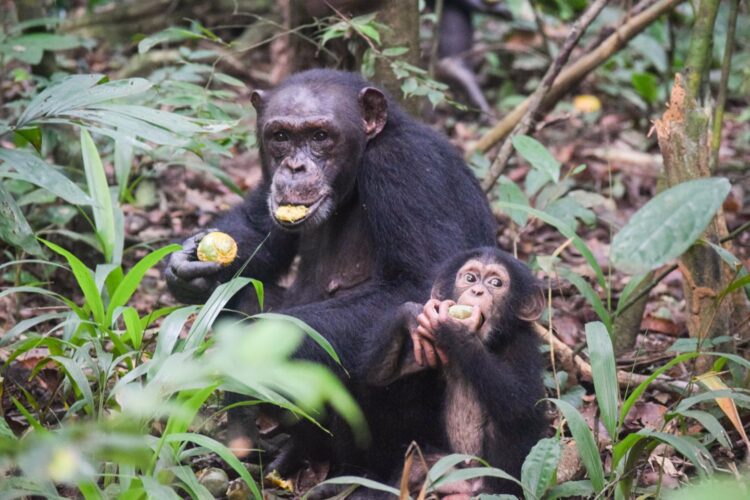Chimpanzees need more than five years to acquire key skills

Credit: Tatiana Bortolato, Taï Chimpanzee Project
Few species develop as slowly as humans, both in terms of developing adult skills and in terms of brain development. Human infants are born so underdeveloped that they cannot survive without adult care and feeding for some years after birth. Children still need to learn fundamental skills such as walking, eating, talking, using tools and much more. The timing of when these developmental milestones emerge is used by doctors to determine if your child and your child’s brain are developing normally. However, we know little about the timing of when motor and social developmental milestones emerge in other long-lived, closely-related species, such as chimpanzees; nor what this means for their brain development. For example, when do chimpanzees start to walk, feed themselves, groom others and use tools? Fully charting development milestones in wild chimpanzees and other species can help us understand the evolutionary basis of such extended developmental periods.
Researchers at the Max Planck Institute for Evolutionary Anthropology in Leipzig have now systematically mapped a wide array of behavioural skills and determined at which point during development these skills emerge in wild chimpanzees. For this study, the researchers observed 19 chimpanzee infants (eight females and 11 males) from the Taï National Park, Côte d’Ivoire, from the first month after they were born until five years of age. The results showed that gross motor skills begin to emerge at around four months, communication traits at 12 months, social interaction skills at 14 months and fine motor skills at 15 months. “Not only the time frame, but also the order of emergence of the different skills is very similar to what we see in humans, reflecting a shared evolutionary history”, says first author Aisha Bründl. “Our findings are in line with the delayed benefits hypothesis, which states that extended development is necessary for acquiring adult skills.”
“Such developmental milestones may shed light on the maturation of the brain”, says senior author Catherine Crockford, a co-leader of the Evolution of Brain Connectivity (EBC) project of the Max Planck Society. “Our findings suggest that some parts of the chimpanzee brain may develop slowly like in humans”. This remains to be investigated as part of this new EBC-project, a collaboration between the Max Planck institutes for Evolutionary Anthropology and for Human Cognitive and Brain Sciences, in the context of which researchers collect, scan and analyse post mortem brains of great apes and relate these findings to ape behaviour.
In addition, the researchers found that more complex skills, like tool use and social interactions, emerge later, with larger differences between individual chimpanzees in when they emerge than less complex skills. “This variation may be caused by underlying differences in the social environment a chimpanzee is growing up in, but also other factors such as nutrition, and remains to be investigated further”, explains co-author Patrick Tkaczynski.
“Such a developmental study requires long-term data, since chimpanzees have a similarly slow life history as humans”, Roman Wittig, another senior author on the study and director of the Taï Chimpanzee Project points out. “We are lucky to have 40 years of observations on the same wild chimpanzees.” Overall, this study is the most extensive description of developmental milestones in chimpanzees to date and brings us a step closer to shedding light on shared developmental pathways of great ape species.
###
Original publication:
Aisha C. Bründl, Patrick J. Tkaczynski, Grégoire Nohon Kohou, Christophe Boesch, Roman M. Wittig,Catherine Crockford
Systematic mapping of developmental milestones in wild chimpanzees
Developmental Science, 15 May 2020
Contact:
Dr. Catherine Crockford
Max Planck Institute for Evolutionary Anthropology, Leipzig
+49 341 3550-220
[email protected]
Dr. Roman Wittig
Max Planck Institute for Evolutionary Anthropology, Leipzig
+49 341 3550-204
[email protected]
Media Contact
Sandra Jacob
[email protected]
Related Journal Article
http://dx.





